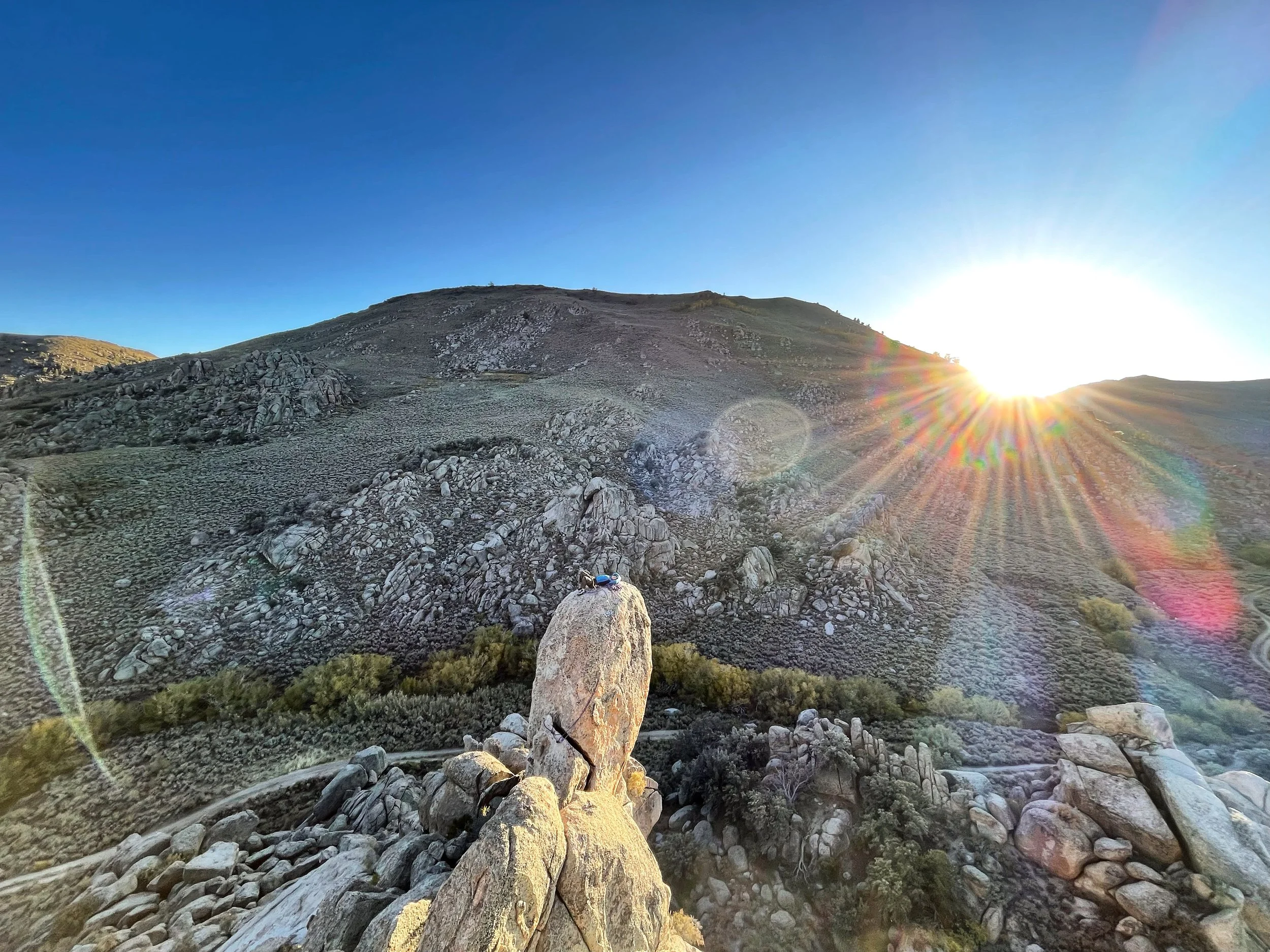THE TIGHT ROPE

An Excerpt on The Best of All Possible Worlds for Dr. Gregory Bruce 1.17.19
Amos 3:3-8 reads, “Do two men walk together unless they have made an appointment? Does a lion roar in the forest when he has no prey? Does a young lion growl from his den unless he has captured something? Does a bird fall into a trap on the ground when there is no bait in it? Does a trap spring up from the earth when it captures nothing at all? If a trumpet is blown in a city will not the people tremble? If a calamity occurs n a city has not the LORD done it? Surely the Lord God does nothing unless he reveals his secret counsel to His servants the prophets. A lion has roared! Who will not fear? The Lord God has spoken! Who can but prophecy?”
Of course, this passage is written to an ancient people group in a land far, far away. Yet, the principles that lay among these passages—be they ever so subtle, perhaps hard to illicit—are profound. These words illuminate a time-bound tension within the members of the Lord and his creation that is perhaps beyond finite comprehension. At its core, these pages ask one question: Is this the best of all possible worlds?
Of course, there are many Scriptures that could feed such a conversation. Many would draw on Romans 8:28, which proports that all things work together for the good of Christians. Others, perhaps, would draw on Jeremiah 29:11, which says “I know the plans I have for you, plans to prosper you.” Yet, I believe such passages are insufficient. They show one part of a much greater cosmic tension. Yes, God has good plans for his people. He is—indisputably—a good Father taking so much care his flock as to make the birds of the air and fish of the sea appear unattended for. Yet, any sensibly experienced partaker in this great cosmic age would also know that such truths are sometimes less difficult in the day-to-day—the funerals and the lay-offs.
In my own life, these truths found rocky soil when my Dad was diagnosed with brain cancer. They found a cliff when his church let me go. And they found nothing less than tears when my Granddad passed as well. I found myself resonating with far less cheery passages of Scripture, such as those in Job or Ecclesiastes, wondering what good could come out from under the Sun.
So, what is this tension and how to we entertain it? What is right? Is it okay? Should we simply have more faith like those faithful men of old so prestigiously recorded in the Hebrews? I believe Amos sheds light on the issue.
He is unearthing the tension between human agency and divine Sovereignty. He asks rhetorically, “do two men walk together unless they have appointed it?” Of course, the answer is no. They must choose it. Yet, he also asserts: “The Lord God has spoken! Who can but prophesy?” If God has spoken, how foolish to assume it will not happen. So, who decided to walk together? Did the men appoint it? Or did God? If the men appointed it, perhaps their path could find an ill-gotten destination. If God, would their path end in one of the Bible’s many metaphorical “promise-lands?”
My answer is yes. In Systematic Theology, Dr. Walter Johnson asserts that man is both completely free in his agency and God is completely Sovereign in his control of that agency. This is the root issue, because if the world is subject to man’s agency—an imperfect record—it may fall short of the best of worlds. If it is bound to God’s control, then surely it must be equally good. Fall in neither of these traps, friend. There is a tight rope between the two that we may walk if we have the right balance.
How can this be so?
Well, my friend Dr. Johnson has asserted that God is sovereignly controlling that we freely control.
What?
Yes.
God can choose that we will freely choose a certain course. So, we have agency. God has just ordained that agency. If he can ordain a decision, he can ordain a free decision. Such an ordinance is of course clouded by the constraints of finite minds and time, but theoretically and theologically possible. I do not think anyone would refute this point, given enough ponderance. So, if this is the case, is this the best possible world?
I would say perhaps.
Of course, God’s plans are well. But, they mingle with men. The two men choose to walk together, and God chooses they do so. So, he has ordained it, and if they know him, he has promised it for their good. In fact, he has even planned out the good works for them to do along this path (Eph 2:10). Yet, if they know the good they ought to do and (with agency) do not do it, they sin (which is a falling short) (Jas 4:17). So, I would say, yes, God provides the best of possible worlds, but yes, we must walk in it. The very choice to not walk in it seemingly concludes that it is possible to fall short of this world. Of course, we have, literally, the fall of man to bastion this truth.
So, yes there is a best of all possible worlds that is entirely possible to walk into. We, and God, may choose it. But, yes, there are constant falling shorts of this world. So, does God redeem each of these? For now, only the mind of Christ may know.
BUT
Down the road, the answer is yes. Why? This world is being made new. While it is still in its primal state now, Romans 8 describes even our trees as yearning for the return of our King Jesus. Why? He will redeem this planet and glorify our bodies. So, this world will become perfect, as He is perfect.
However, only He knows this time. For now, we are in the in between—Walking the tight rope of agency into the land of unknown and trust. Perhaps, it is better to trust the holder of the rope than to attempt an insufficient and temporary steading of it.




